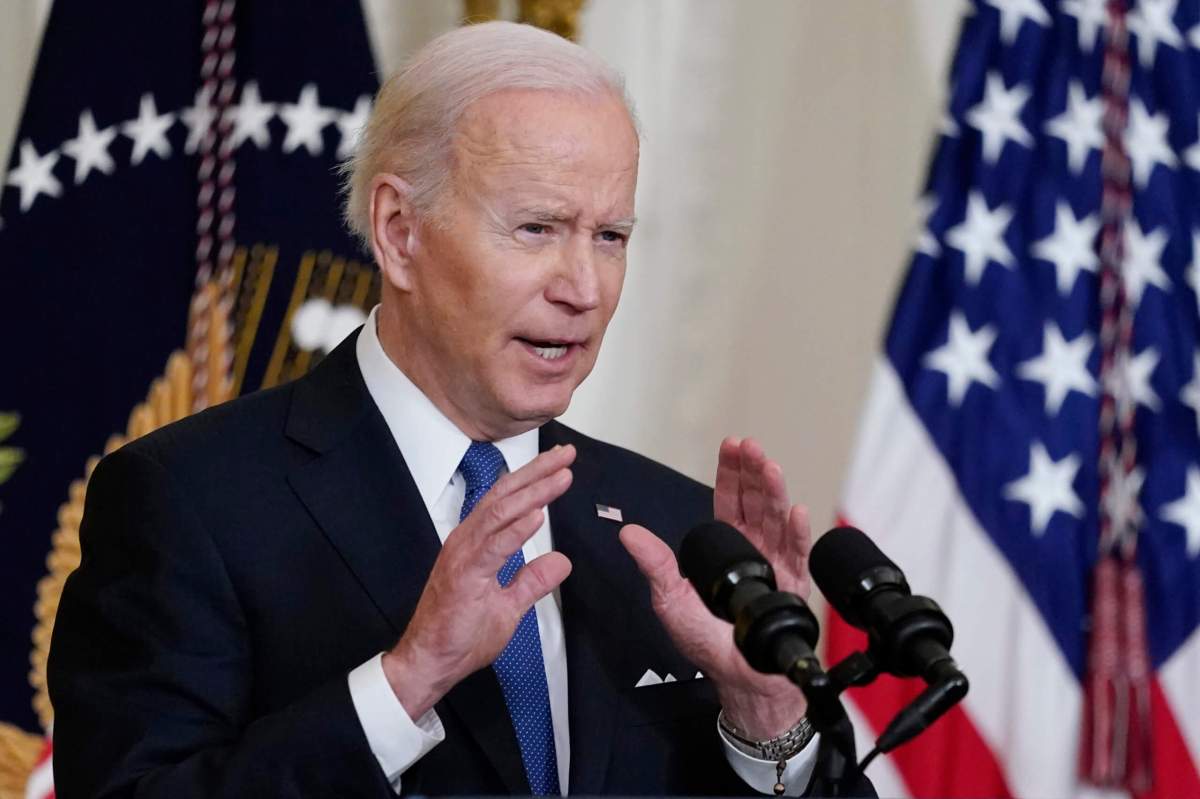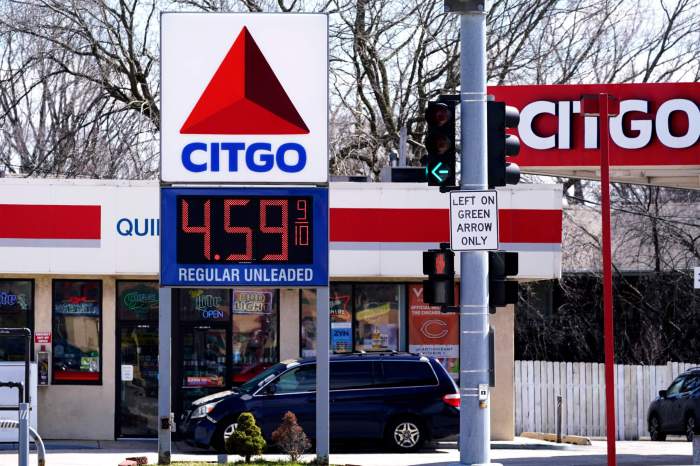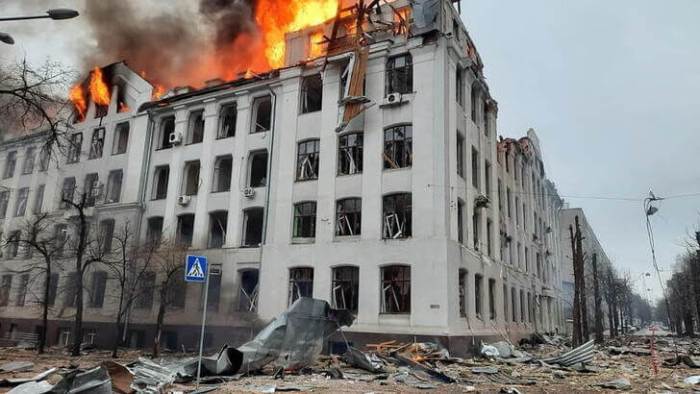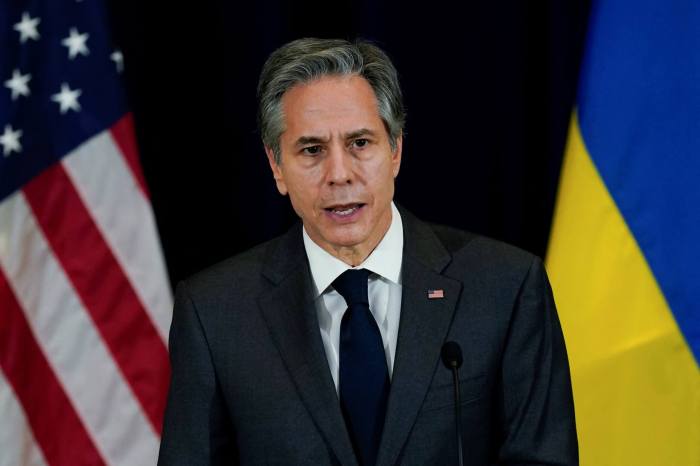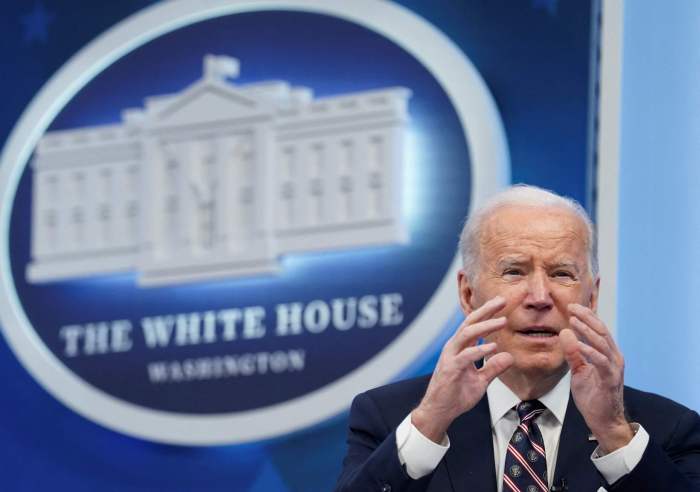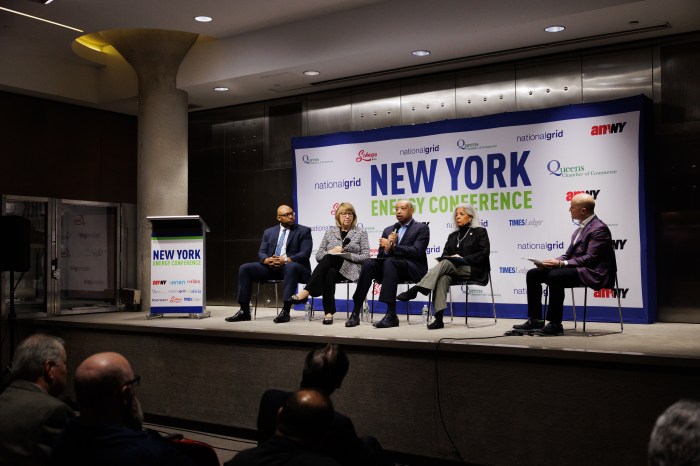The United States on Wednesday announced sanctions targeting Russian President Vladimir Putin’s two adult daughters and said it was toughening penalties against Russian banks in retaliation for “war crimes” in Ukraine. The United Kingdom piled on asset freezes against two major banks, a ban on British investment in Russia and a pledge to end dependency on Russian coal and oil by yearend.
The European Union was also expected to soon take additional steps, including a ban on new investment in Russia and an embargo on coal, after the recent evidence of atrocities emerging in the wake of the retreat by Russian forces from the town of Bucha.
The U.S. acted against two of Russia’s largest banks, Sberbank and Alfa Bank, prohibiting assets from going through the U.S. financial system and barring Americans from doing business with those two institutions.
In addition to sanctions aimed at Putin’s adult daughters, Mariya Putina and Katerina Tikhonova, the U.S. is targeting Prime Minister Mikhail Mishustin; the wife and children of Russian Foreign Minister Sergey Lavrov; and members of Russia’s Security Council, including Dmitry Medvedev, a former president and prime minister.
The penalties cut off all of Putin’s close family members from the U.S. financial system and freeze any assets they hold in the United States.
President Joe Biden said the latest round of sanctions would be “devastating.”
“I made clear that Russia would pay a severe and immediate price for its atrocities in Bucha,” Biden said in a tweet.
Biden was expected to sign an an executive order that would ban new investment in Russia by Americans no matter where they are living. The U.S. Treasury Department was preparing more sanctions against Russian state-owned enterprises, according to the White House.
Britain announced asset freezes targeting Sberbank and the Credit Bank of Moscow and designated eight Russian oligarchs whom it says Putin “uses to prop up his war economy.”
“Together with our allies, we are showing the Russian elite that they cannot wash their hands of the atrocities committed on Putin’s orders,” British Foreign Secretary Liz Truss said.
Britain had already announced a plan to phase out Russian oil, which accounts for 8% of the U.K. supply. Russia is the top supplier of imported coal to the U.K., though British demand for the polluting fuel has plummeted in the past decade.
Britain has not ended imports of Russian natural gas, which accounts for 4% of its supply, saying only that it will do so “as soon as possible.”
Videos and images of bodies in the streets of Bucha after it was recaptured from Russian forces have unleashed a wave of indignation among Western allies, who have drawn up new sanctions as a response.
The European Commission’s proposed ban on coal imports would be the first EU sanctions targeting Russia’s lucrative energy industry over its war in Ukraine.
EU foreign affairs chief Josep Borrell said energy was key to Russian President Vladimir Putin’s war coffers.
“A billion euro is what we pay Putin every day for the energy he provides us since the beginning of the war. We have given him 35 billion euro. Compare that to the one billion that we have given to the Ukraine in arms and weapons,” Borrell said.
The steady intensifying in sanctions is less a sign of their shortcomings than the building pressure against Russia as it seeks foreign investment and basic goods, Brian Deese, director of the White House National Economic Council, told reporters at a Wednesday breakfast. “We need to have patience and perspective when it comes to the impacts on Russia of this unprecedented and crippling sanctions regime,” Deese said at the event sponsored by The Christian Science Monitor.
Deese noted that Russian inflation is running at 2% weekly, which would compound to annual inflation above 200% annually. He noted that the Biden administration expects Russian prices will not ultimately rise more than 200% this year.
While the White House has said Russia should not attend the G-20 meeting in Indonesia this November, he noted that it may drop out of the organization anyway because its economy has shrunk in size so dramatically.
After several European countries announced the expulsion of Russian diplomats, the European Commission proposed a fifth package of sanctions including a ban on coal imports that could be adopted once unanimously approved by the 27-nation bloc’s ambassadors.
European Commission President Ursula von der Leyen said the coal ban is worth 4 billion euros ($4.4 billion) per year and that the EU has already started working on additional sanctions, including on oil imports.
She didn’t mention natural gas, with consensus among the 27 EU countries on targeting the fuel used to generate electricity and heat homes difficult to secure amid opposition from gas-dependent members like Germany, the bloc’s largest economy.
But European Council President Charles Michel said the bloc should keep up the pressure on the Kremlin, suggesting that an embargo on gas imports should also be required at some point in the future.
“The new package includes a ban on coal imports,” Michel said on Wednesday. “I think that measures on oil, and even gas, will also be needed, sooner or later.”
The new package of measures proposed by the commission also includes sanctions on more individuals and four key Russian banks, among them VTB, the second-largest Russian bank. The bloc also would ban Russian vessels and Russian-operated vessels from EU ports.
Further targeted export bans, worth 10 billion euros, in sectors covering quantum computers, advanced semiconductors, sensitive machinery and transportation equipment also were proposed.
“I appreciate the strengthening of the 5th EU sanctions package: bans on Russian coal, vessels accessing EU ports, and road transport operators,” Ukraine Foreign Minister Dmytro Kuleba wrote on Twitter. “But it will take a gas/oil embargo and de-SWIFTing of all Russian banks to stop Putin. Difficult times require difficult decisions.”
Western allies have already cut out several Russian banks of the SWIFT financial messaging system, which daily moves countless billions of dollars around more than 11,000 banks and other financial institutions around the world.



